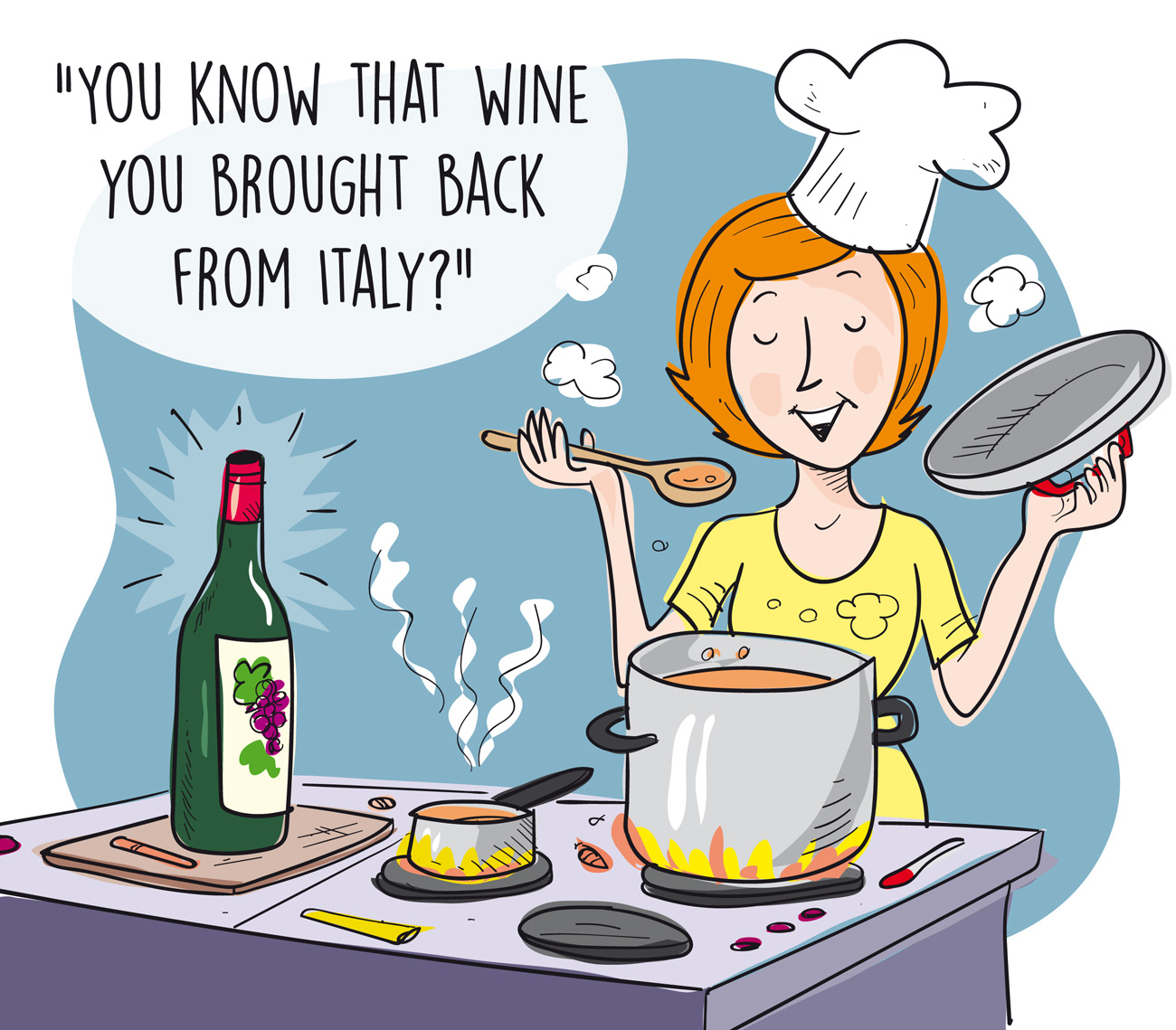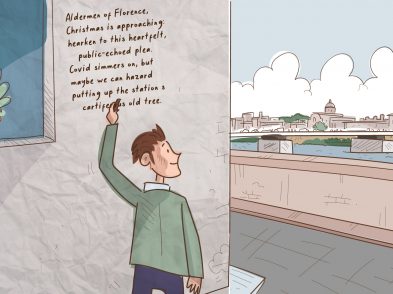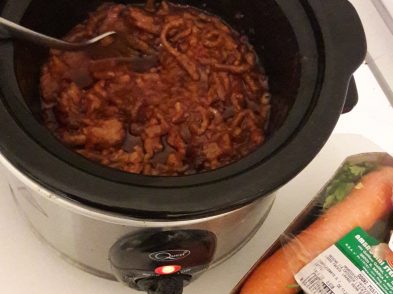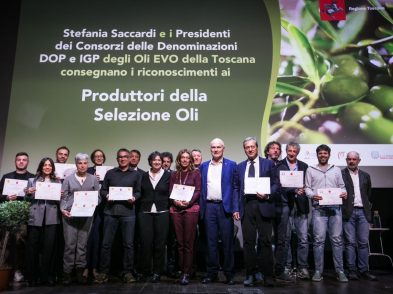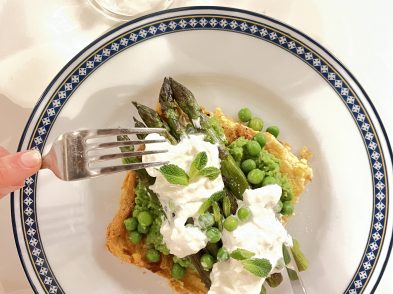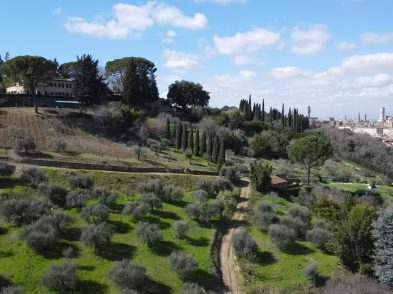It was too good to be true. “I have a friend who’s a winemaker,” said Ambrogio, my Italian literature teacher, “and he’s suggested that I bring some students out there this summer.”
Two months later it was mid-August, and the seven of us were thoroughly installed in the guest house at a Chianti cantina. Every other day, it seemed, we would mount the “bestia”, as Ambrogio called his little black minibus, and drive north to Florence or south to Siena. We sampled the cheese in Pienza; we visited San Gimignano, which I struggled to enjoy because a rustic spider-bite had inflated my left hand. And there was always, always a view, whether from the top of Siena’s Museo dell’Opera del Duomo, from which you could make out Monte Amiata, or just from the side of the road, when it was decided that we should pull over and savour a sunset.
Perhaps, though, the greatest impression was left on the taste buds. Each night we dined on whatever the housekeepers Paola and Giovanni had prepared, usually accompanied by a little something from the cellar. I learned so much at that table. I learned, from observing Paola, the aggressive elbow action involved in oxygenating the wine.
I learned that a blend must be at least 80 per cent Sangiovese grapes in order to qualify as Chianti Classico. And I learned from Ambrogio that neither the whites nor rosés that he was happily quaffing could be considered vinous. “Red is the colour of wine,” he declared solemnly. “Rosé is a beverage.”
The staple of the cantina in question was, and still is, Sangiovese, inflected with different concentrations of Malvasia Nera, Merlot and Canaiolo grapes. The jewel in their crown, though, is a pure Merlot, which was probably wasted on us. But such was the generosity of the owners that, even after three weeks of consuming the fruits of their labours, we were encouraged to bring some away as a souvenir and at a fraction of its actual price. Conscious of taking liberties, I went for what looked like a reasonably humble blend of Sangiovese and Pinot Noir, and paid 15 euro for it. The bottle was delivered to my room that evening, packaged for flight.
Back it went with me to cooler climes, a draught of consolation. But drink it I did not. It had to age for another two years, and so it followed me to university, where it lived under my sink, out of reach of direct sunlight and undiscerning friends. I meanwhile contented myself with plainer fare from the wine merchant. In those drab days—on a pretty unprepossessing street, in a room treated without much pride or affection—the wine was like an old friend, sole proof that the summer had not been a dream.
It survived, and followed me back home for the summer holidays. I then jetted off for a week with friends in a sleepy village in the south of France, where we played boules and garden golf. We drank a good deal of something that looked like wine, but was French.
After a return journey that took me through both Luton and Stevenage, I was glad to be back in the Northumbrian wilderness, and heartily ready for the supper that was on the table. Nowadays I would insist upon spaghetti al ragù, but back then I still called it a “Bolognese”. It tasted so good after a day of snacking at airports and stations. And yet my mother wore a guilty look.
“You know that wine you brought back from Italy?” she said.
No. It couldn’t be. I froze, pasta hanging from my mouth. It dawned upon me, a Thyestean horror gripping my stomach.
“I was looking for a wine to use in the Bolognese and I found it in the cupboard. I just chucked it in and then Dad told me it was yours.”
Prose fails me at this point. Only meter and rhyme can possibly give shape to my feelings…
Illustration by Leo Cardini
A Vinanelle
I cherished once a red that now I rue.
You need to ask me why I look so glum?
It’s all been thrown away on a ragù!
One year old, must mature another two
Before you can know the notes of violet, plum
And cherry in the red that I now rue.
Why couldn’t Dionysus and his crew
Have parachuted in and stopped my Mum
From throwing it all away on a ragù,
Or at the very least have brought a brew
That savoured something of comfort’s crumb?
I cherished once a red that I now rue,
Clutching the bottle and its residue.
And OK, I admit they salvaged some –
Not all was thrown away on the ragù –
But what does it matter when the cork was due
Another fourteen months under my thumb?
I cherished once a red that now I rue.
It’s all been thrown away on a ragù.

